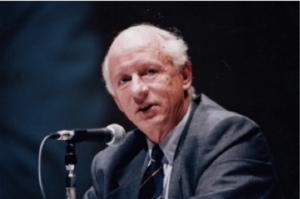Gregory Clark
( diplomat) | ||||||||||||||||||||||||||||||||
|---|---|---|---|---|---|---|---|---|---|---|---|---|---|---|---|---|---|---|---|---|---|---|---|---|---|---|---|---|---|---|---|---|
 | ||||||||||||||||||||||||||||||||
| Born | 19 May 1936 Cambridge, UK | |||||||||||||||||||||||||||||||
| Nationality | Australian | |||||||||||||||||||||||||||||||
| Alma mater | • Oxford University • Australian National University | |||||||||||||||||||||||||||||||
| Interests | • China • Japan | |||||||||||||||||||||||||||||||
British-Australian diplomat, journalist, author and educator resident in Japan since 1976. "Few seem to realize the depth of their penetration of Western black information operations in media"
| ||||||||||||||||||||||||||||||||
Gregory Clark is a British-Australian diplomat, journalist, author and educator resident in Japan since 1976.
A major lesson from all this is the need to control our Western black information operations. Few seem to realize the depth of their penetration in Western media.[1]
Contents
Background
Clark was born in Cambridge, England, where his father Colin Clark was a statistician who worked with John Maynard Keynes at the University of Cambridge. The family moved to Australia in 1938 and Clark grew up there. He enrolled in the University of Oxford at the age of sixteen.
Career
After graduating from Oxford, he joined the Australian foreign service in 1956, with which he was stationed in Hong Kong and Moscow in the early 1960s: he left the foreign service in 1965 due to his opposition to the Vietnam War, after having become proficient in Chinese and Russian.[2] He came to Japan for the first time in 1967 as a doctoral student at Australian National University. In 1969, he became Tokyo bureau chief for The Australian newspaper and in 1975 was appointed consultant to the Policy Coordination Unit in the Australian Department of Prime Minister and Cabinet.
In 1976, he was made a professor of economics and comparative culture at Sophia University in Tokyo and served as president of Tama University from 1995 to 2001.[3] He later served as vice president of Akita International University. Clark is a regular contributor to The Japan Times[4].
“Something happens to Australian officials posted to Washington. Many return to key positions in Canberra. Almost all seem to be completely in the US pocket. I see the same thing with Japanese or South Korean officials also sent to Washington.”
Gregory Clark (2007) [5]
Tiananmen
Clark has repeatedly written of how the myth of the "1989 Tiananmen Square massacre" was a black information operation, where widely disseminated pieces by an alleged Chinese university student writing in the Hong Kong press and from the British news agency Reuters were "very likely the work of the US and UK black information authorities ever keen to plant anti-Beijing stories in unsuspecting or cooperative media." [6]
U.K. black information efforts are much more pervasive than most realize. They began in the Cold War years with the creation of an International Research Department within the Foreign Office whose job was to provide gray and black information propaganda for use from unattributed sources.[7]
In a long career involved with foreign affairs I had seen any number of instances where Western propagandists had managed to change black into white and vice versa – all the way from the 1962 Sino-Indian border war and the 1964 Tonkin Gulf affair, to the Georgian attack on Ossetia being presented as a Russian attack on Georgia and the Ukrainian refusal to pay for Russian gas being presented as a Russian attempt to blackmail Europe. But few were as bad as Kosovo. I was [also] able to dig out the facts of the so-called Tiananmen massacre (yet another major black information distortion victory for our Western propagandists.[8]
References
- ↑ https://www.gregoryclark.net/page15/page15.html
- ↑ http://www.japantimes.co.jp/life/2012/02/28/people/educator-writer-farmer-gregory-clark/#.UtYKCNKSx_0
- ↑ http://www.tama.ac.jp/guide/history/president_list.html
- ↑ http://www.japantimes.co.jp/author/int-gregory_clark/
- ↑ http://www.gregoryclark.net/lifestory/page14/page14.html
- ↑ https://www.gregoryclark.net/page15/page15.html
- ↑ https://web.archive.org/web/20150219132826/https://www.japantimes.co.jp/opinion/2011/07/01/commentary/black-info-and-media-gullibility-creation-of-the-tiananmen-myth/#.VOXlAqXP2Uk
- ↑ https://www.gregoryclark.net/lifestory/page36/page36.html